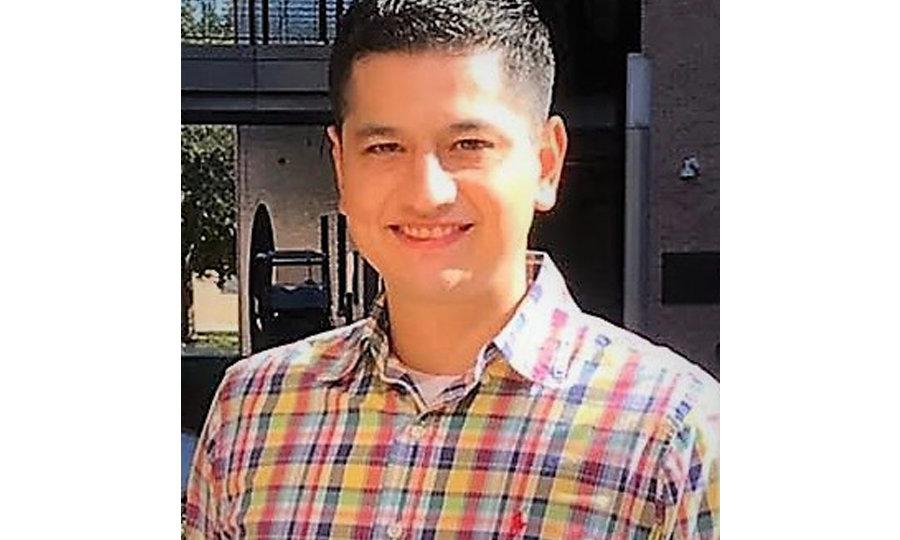Calendar Icon
Mar 14, 2024
![]() RSS
Submit a Story
RSS
Submit a Story
Cesar Leos, a doctoral student in mechanical engineering, has been selected to receive the Computational Physics Workshop Fellowship from the Los Alamos National Laboratory (LANL) in New Mexico for summer 2024.
Leos will receive the $17,500 fellowship and attend the Computational Physics Summer Workshop June 3 through Aug. 9, where he will participate in a research project through the Continuum Models and Numerical Methods (CMNM) group at LANL.
“This fellowship represents a recognition of my academic achievements in the field of computational direct numerical simulations here at UNL and it provides an opportunity for me to delve deeper into my passion for computational fluid dynamics and turbulence modeling, allowing me to contribute meaningfully to cutting-edge research at LANL,” said Leos, who is advised by Jae Sung Park, associate professor of mechanical and materials engineering.
“Professionally, this fellowship offers invaluable experiences and resources that will shape my future career trajectory. It provides access to mentorship from leading experts in the field, exposure to state-of-the-art research methodologies, and collaboration opportunities with fellow researchers. These experiences will not only enhance my technical skills but also broaden my perspective and prepare me for leadership roles in industry.”
Leos said the research project he will participate in – titled “Reduced order modeling for RANS verification” – aims to advance turbulence modeling for fluid flow simulations with a focus on accurately capturing the unresolved processes in high-speed multimaterial flows, turbulence, and multicomponent reactive flows for national security applications.
It is recognized that computational models for Reynolds-averaged Navier-Stokes equations (RANS equations) may be inaccurate due to limited or inadequately collected data for specific designs. To address this challenge, the CMNM group has developed a new method by extracting dominant features in the dynamics. Leos said he expects to participate in the post-processing of the results, assisting in validating computational models more effectively, thereby contributing to the improvement of designs.
This experience, Leos said, will be valuable for meeting his career goals.
“By leveraging the knowledge and skills gain during this fellowship, I aspire to become a thought leader in computational fluid dynamics, driving innovation and pushing the boundaries of scientific understanding,” said Leos.
Submit a Story
